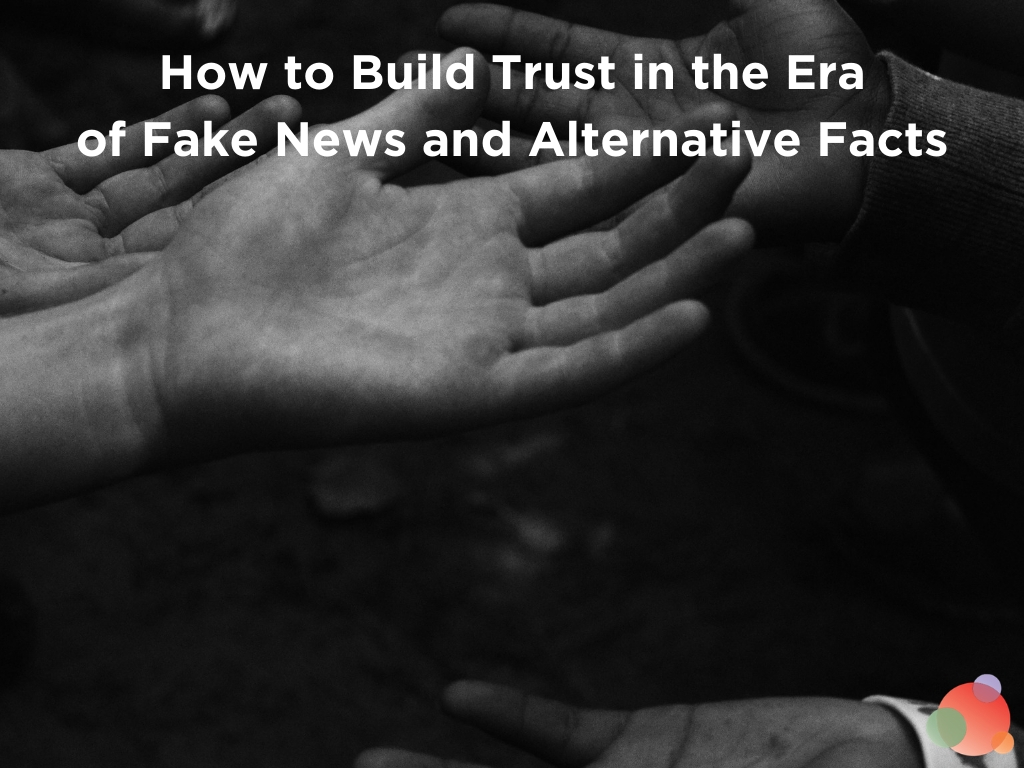 I’ve been thinking a lot about trust lately.
I’ve been thinking a lot about trust lately.
A few weeks ago, I received an email from someone who watched a Spin Sucks video that, for some reason, rubbed him completely the wrong way.
In the email, where he carefully wrote swear words in all caps, he told me that spin does suck and we are the worst liars in the industry.
It was as if he knew exactly which buttons to push because integrity is so incredibly important to me.
I’m not one to dwell for weeks on a mean email or comment (though I will dwell for an hour or so), but it truly has me thinking about trust.
What is trust and how can it be eroded if someone on the other side of the screen is projecting something on you that you can’t control?
Transparency is Crucial
It’s an interesting conundrum because of where we are in the United States with fake news and alternative facts.
Not only are there people commenting all over the web without context, but we have to verify nearly everything we come across.
To boot, our reputations—that of ourselves, our colleagues, and our brands—are wrapped up in trust, which is getting harder and harder to control.
In the 2018 B2B Buying Disconnect, TrustRadius found the brands that are completely honest and transparent about everything—including their shortcomings—are the winners, in the long run.
This reminds me of some of the early talks Marcus Sheridan gave, circa 2009-2010.
At the time, he was still running River Pools & Spas and he had a competitive comparison chart on his website.
Even though his competition beat them at some things, he was transparent about what those were and people ended up trusting them more because he was so honest about it.
Imagine someone visiting your site to check out your competition—and then ending up buying from you.
It’s crazy to think, but it works to build trust.
How can you be crazy transparent about your strengths and weaknesses? And then compared to your competition?
Consistency is Necessary
Everyone in your organization has to say the same things.
They have to ooze the same values and morals.
You all have to be consistent in what you say, how you act, and what you do.
Earlier this year, we were at the San Diego Zoo on a very fancy, behind-the-scenes tour.
(If you ever have a chance to do it there, I cannot recommend it more highly. One of the best experiences of my life!)
As we learned more about the animals, we talked about the level of consistency they have to have from ticket taker to zookeeper.
Our tour guide told us that, because they work so hard on conservation around the globe, they have to be above reproach.
That means that if anyone who believes zoos are bad walks in there to try to trap one of their employees or volunteers, they all have to be on message.
The same goes for you. You could have hundreds of employees or volunteers—or it could be a handful of you.
No matter what, consistency is necessary to build—and maintain–trust.
Customers are Central
Spin Sucks community member and my new friend, Jill Manty, is the master at getting customer feedback.
Using a review platform called Clutch, she works with clients to provide reviews and testimonials.
The platform is interesting because it’s not like Yelp or Google Places in that you can just write a sentence or two.
Instead, it requires the reviewer to answer a bunch of questions and even do a phone interview or two before their review is posted online.
For B2B organizations and service businesses, this is invaluable because they go beyond the usual, “MantyWeb is awesome!” — CMO at Fortune 250 company.
But asking a client (or former client) to spend that kind of time reviewing you is, well, a bit staggering.
Jill knows how central her clients are to her business, and she works hard to make it as easy as possible for them to recommend her web design firm…even when what’s out there doesn’t make it all that easy.
Our customers and clients are our very best advocate, but less than 20 percent actually leave reviews or recommend us when they’re happy.
Less than 20 percent!
To build your brand’s trust to a level that cannot be broken, your customers must be central in all of your communication.
Feedback is Indispensable
Now let’s go back to the really mean email I received a few weeks ago.
In between the swear words and the personal attacks, there was one nugget of feedback that was indispensable.
Of course, it could have been delivered differently. And it took a lot (A LOT) for me to go back and re-read it a few times to find it.
But it was in there. And we used it to make a few adjustments to our video and the copy that went along with it.
It’s not easy to hear your baby is ugly, when the feedback is delivered in a positive and constructive way.
It’s even harder when it’s accompanied with swear words in all caps and personal attacks.
But if you can set your ego aside, the feedback—both positive and negative—you receive from customers, colleagues, community and yes, even trolls can help you build a level of trust that cannot be broken.
Your Reputation is Built on Trust
Warren Buffett famously said:
It takes 20 years to build a reputation and five minutes to ruin it. If you think about that, you’ll do things differently.
What are you going to do differently?
Photo by Kenna Phillips on Unsplash